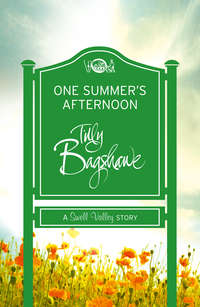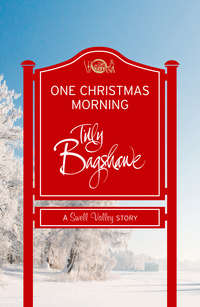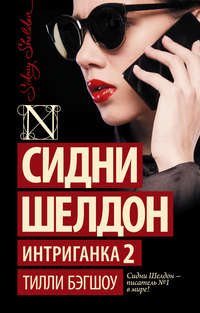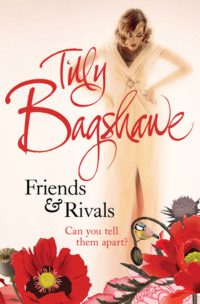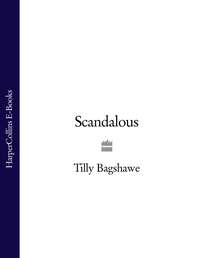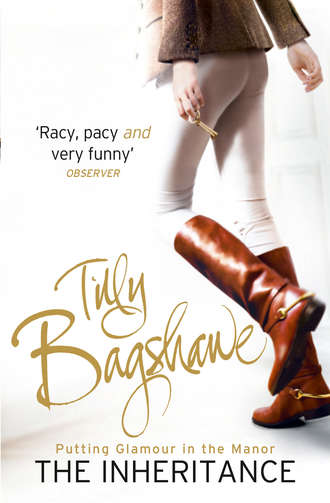
Полная версия
The Inheritance: Racy, pacy and very funny!
Jason had begun dragging the heavy cases up the steps but Mrs Worsley hurried forward, assuring him that Mr Jennings, the gardener, would ‘see to all that’.
‘He’s not really called Jennings, is he?’ The faintest of smiles traced Jason’s lips.
That boy looks ill, thought Mrs Worsley. As pale and pasty as rolled-out dough. With any luck the country air will sort him out.
‘He is,’ she said aloud. ‘And he’d be mightily upset to see you manhandling your own luggage, Mr Cranley.’
‘Jason,’ said Jason, embarrassed.
‘Jason.’
Mrs Worsley smiled. First impressions weren’t everything, of course, but she liked this family. The rambunctious little girl; the shy, polite son; the beautiful, perhaps slightly sad-looking mother. She felt certain that dear Mr Flint-Hamilton would have liked them too.
Fiona Worsley had worked at Furlings for over thirty years. She had known Tatiana’s mother, Vicky, and loved her dearly, grieving with Mr Flint-Hamilton when she died, and helping him to raise his infant daughter. A few years after Tati’s mother’s death, Mrs Worsley’s own husband, Mick, had also died, suddenly from a heart attack aged only forty-one. Rory Flint-Hamilton had returned the favour, supporting his housekeeper through her loss. The bond forged between them through mutual grief was a strong one. Never romantic. But as unique and powerful as any marriage.
Without children of her own, Mrs Worsley had focused all her love and attention on the young Tatiana, although she was a strict mother-figure and not especially demonstrative. In an odd, unspoken way, she, Rory and Tatiana had become a family unit of sorts up at Furlings, although none of them would ever have described the relationship in those terms. It had broken Mrs Worsley’s heart, watching Tatiana throw her life away on parties and unsuitable men as soon as she got into her teens, both for Tati’s sake but also for her father’s. Rory Flint-Hamilton had been a lovely man and, in her own way, Fiona Worsley had loved him. She’d particularly hated watching dear Mr Flint-Hamilton agonize over his will and Furlings’ future during the last, painful months of his life, and she laid the blame for his suffering squarely at Tatiana’s door. As such, she was firmly in the pro-Cranley camp when it came to the dispute over Rory’s will.
It wasn’t that she didn’t love Tatiana, or that she resented her, as many people in the village assumed. But at this point, after so many years of bad behaviour and broken promises, the housekeeper shared her former employer’s view that tough love was Tatiana’s only chance of salvation. And then there was the estate to think about. Furlings was as much a part of Mrs Worsley’s life as it was of Tatiana’s. At least now the estate would be preserved. Not only that, but it would become a family home again, cherished and brought back to life as a great house should be. She couldn’t understand why so many people in Swell Valley seemed unwilling to give this young Australian family a chance.
‘Come and see my bedroom!’ Logan was shrieking, circling her mother like a deranged shark as Angela finally made it across the threshold of her new home. ‘I’ve picked it out already, it’s right at the top and it’s amazing! There’s room for bunk beds. Can I have bunk beds? I really really really want bunk beds, and yellow wallpaper.’
‘I don’t know about the yellow wallpaper,’ said Angela. All of a sudden she did feel tired, and achy and sore and in desperate need of a shower and change of clothes. ‘Let’s see what Dad says.’
Furlings wouldn’t be home until Brett got here and gave it his seal of approval. It was hard to imagine how he couldn’t love it – how anyone couldn’t. But Angela intended to spend the next week making the house as perfect and homely and welcoming as was humanly possible.
If Brett’s happy, we’ll all be happy.
We’ll settle down here. Put down roots.
Angela Cranley closed her eyes and willed it to be so.
Brett Cranley closed his eyes and willed himself to come. Normally he had no trouble in that department, but the stress of opening up new offices in London combined with family pressures and physical exhaustion had taken their toll. Either that, or the girl just wasn’t hot enough.
‘Oh, that’s good! That’s so good.’
The secretary moaned, arching her back and giving her new boss a better view of the eagle tattoo across the top of her buttocks. Brett was not an admirer of tattoos, on men or women. He found himself becoming irritated – why had the stupid girl gone and done such a thing? – which was not helping him to orgasm. He closed his eyes again. Focus, for fuck’s sake.
Reaching around, he grabbed hold of the girl’s breasts which were large and heavy, like two water balloons. Her nipples were small and erect, twin pink diamonds between his thumb and forefinger. Better. She was pretty, sexy in a slightly chubby, accessible sort of way, with short hair – a pixie cut, he believed it was called. Tricia had had glorious long hair, black as tar and silken. Thinking about it now, Brett felt his erection strengthen and his excitement start to build at last.
‘Oh Brett! Brett!’
Thrusting harder and faster, he wanted to say her name but realized he’d forgotten it. Michelle, was it? Or Mary? Something with an ‘M’. He’d only hired her a week ago as the receptionist for Cranley Estates’ new London office. He couldn’t be expected to remember everything.
Reaching behind her, the girl cupped a hand underneath his balls and began to stroke them. That was it. ‘Oh … Jesus.’ He came, finally, collapsing on top of her, sweat pouring from his brow.
‘That was nice.’ The girl smiled cheerfully, wriggling out from under him.
‘Wasn’t it?’ Brett sighed, rolling onto his back. The carpet felt rough and scratchy underneath him, but he was too tired to move. Bending over him, the girl expertly removed his condom, carried it over to the waste bin in the corner of the office and dropped it inside. Then, still stark naked, she grabbed a few sheets of printer paper, balled them up and dropped them on top, concealing the evidence.
Brett grinned. She’s thorough. I like that in a secretary. A self-starter, too.
He wondered how things were going down in Sussex. Whether Ange and the children had reached the house yet. He must call them in a minute, once what’s-her-name had gone.
He glanced at the clock on the wall: 4.30 p.m. The secretary was already almost fully dressed, doing up the top buttons on her silk blouse and straightening her hair as if she’d just got back from the gym. Clearly she had no expectation of post-coital affection from him: another huge plus. Tricia had been painfully demanding in this regard. In every regard, come to think of it. Brett missed his mistress’s lithe, gymnast’s body, but nothing more. Tricia had broken the sacred code of the other woman and made a nuisance of herself with Angela, calling the house, showing up at events where she knew his wife would be present. She’d become a threat to his marriage, to his family. Brett Cranley couldn’t tolerate that. His own parents had divorced when he was young, and Brett saw himself decidedly as a family man. Sure he played around. Who didn’t? But he loved his wife and it would be a cold day in hell before he left her for another woman.
But this girl – Michelle. It’s definitely Michelle – she seemed to have a much clearer idea of the boundaries. She also seemed nice, sunny natured, a good sort of chick to have around. Perhaps he could overlook the tattoo and the hair?
Brett Cranley had not grown up poor. His father had run a successful dry-cleaning business and his mother, Lucille, was a hairdresser. What Brett had done was grown up quickly. Both his parents were dead by the time he turned fourteen, his father from a car accident on Christmas Eve, hit head-on by a drunk driver, and his mother from breast cancer. It was Lucille’s death that had affected him the most. An only child, Brett had always adored his mother. And while the loss of his father was shocking and sudden, Lucille Cranley’s protracted illness, her pain and fear, her desperate, dashed hopes of remission, had profoundly changed Brett’s psyche. The teenage boy lost his faith, not only in God and modern medicine, but in other people altogether.
There was no point in loving people, because the people you loved would eventually be taken away from you.
There was no point relying on people, because they would let you down.
There was only one life: this life. And in this life, you were on your own.
These were the lessons Brett Cranley learned from his parents’ deaths.
In some ways they changed him for the better. Having always been a rather lazy pupil, with no fixed goals or plans for his future, Brett suddenly threw himself into his studies. Living with his aunt Jackie and her two children, who were jealous of his good looks, intelligence and modest inheritance, and made sure he knew he was tolerated rather than loved within the family, Brett spent hour after after locked in his room, cramming for exams. When he won a place at a prestigious boarding school on a mathematics scholarship, his aunt didn’t want him to go.
‘It’s six hundred miles away, Brett. You won’t know a soul. Won’t you be lonely?’
‘No.’
‘Your mum wanted you to live here, with us. She thought that’d be best for you.’
‘She was wrong.’
Aunt Jackie looked pained. ‘It was what she wanted. I promised her …’
‘It doesn’t matter what she wanted,’ Brett said angrily. ‘She’s dead.’
‘Brett!’
‘I’m alive and I know what’s best for me. I’m going to St Edmund’s.’
In the end Brett had had to apply to the executors of his father’s will to release funds for his education and had petitioned the family courts to be allowed to go away to school. He never returned to his aunt’s house, or to Burnside, the Adelaide suburb where he’d spent his childhood. It was the first of many battles that he would win in his determined pursuit of wealth and worldly success, the only ‘security’ that meant a damn in Brett’s book. By his sixteenth birthday he was fully legally independent, the top performing scholar at the top school in Sydney, and the youngest-ever applicant to be awarded a place at ANU, the Australian National University in Canberra, for applied mathematics.
ANU was to change Brett Cranley’s life. Not because he graduated with first-class honors and went on to Melbourne Business School to begin an MBA he would eventually be too successful to have time to finish. But because it was at ANU that he met the two women who transformed him from a boy into a man.
The first was a professor’s wife by the name of Madeleine Jensen. Maddie spotted the dark, angry-looking boy on campus in his first week in Canberra.
‘Who is that?’ she asked her husband. Professor Jamie Jensen was the head of the math faculty at ANU, a quiet, scholarly man considerably more interested in Fermat’s Last Theorem than he was in his wife’s sexual needs. Or any other needs, for that matter.
‘That’s Brett Cranley. The prodigy, or so they say. Ridiculous to send a child of that age away to college in my view, but there we are.’
‘I wouldn’t call him a child,’ said Maddie, catching Brett’s eye and the wild hunger beneath his brooding exterior. ‘He’s very good looking.’
‘If you say so, my dear,’ Professor Jensen muttered absently.
Maddie did say so. Not just to her husband, but to Brett himself when she approached him after lectures a few days later. ‘Are you a virgin?’ she asked him bluntly.
Brett replied in the affirmative. Since his mother’s death he’d undergone a self-imposed ban on all interaction with the opposite sex. Not that he had no libido. Quite the opposite. But the strength of the physical longing welling up inside him was at war with the terrible fear of loss and abandonment that had become as much a part of him as his own flesh and bones. Brett adored women – both sexually and for the warmth and intimacy they offered, warmth and intimacy that he desperately longed for – but he was afraid of them.
‘Do you want to be?’
Whether it was Madeleine’s directness, her utter lack of guile, or the fact that she was almost old enough to be his mother; or whether it was her beauty, or her own deep sexual need speaking to his, Brett didn’t know. What he did know was that he wanted to go to bed with her. Very, very badly.
‘No.’
‘Good.’ Maddie smiled. ‘Follow me.’
Sex opened up a new and glorious world for Brett Cranley. Before long it rivalled ambition as the key driver in his personality. His relationships with women were wildly conflicted: needy, passionate and adoring on the one hand; angry, frightened and controlling on the other; each one a reflection of his feelings for his mother, frozen in suspended animation at fourteen. He and Maddie Jensen remained lovers for over a year, but there were many, many others, too many to count, let alone remember, a sea of faces and bodies and, before long, a trail of broken hearts left in his wake. Brett needed sex like a plant craving sunlight. Both the physical rush and the emotional validation fuelled his confidence and ambition like a shot of adrenaline in the arm.
He’d been sure of himself before ANU, before Maddie Jensen.
Now he felt invincible.
It was in his last year, his last few months at ANU, that Brett Cranley met the second woman who was to change his life forever.
Angela Flynn was not a student at the university. A shy, sweet, quietly funny eighteen-year-old girl, with no life experience and no particular ambition, she worked in the Belwood Bakery close to the mathematics faculty building. Brett used to see her when he bought his lunchtime sandwich and was immediately drawn to something about her. It was a combination of innocence, kindness and fragility. Angela was so pale she looked almost like a ghost, with her white-blonde hair and amber eyes, oddly translucent beneath her spun gold lashes. She was the sort of girl who looked as if she might faint if exposed to too much sun, or cold. And yet her disposition belied her appearance. As Brett got to know her, he discovered she was a relentless optimist, as hopeful and trusting of the world as he was cynical and dismissive. He also discovered that she was a virgin. For some reason that he couldn’t define, even to himself, this was important.
His attraction to Angela was different to that with all the other women he had gone to bed with, something that would remain the case throughout their long marriage. He wanted to own her, to protect her, to carry her around with him in a glass case, like a guardian angel. His angel. His Angela. He was sure that his mother would have loved her.
As it turned out, marrying Angela Flynn was not the easy feat he’d assumed it would be. She had a father, and three older brothers, all of them Irish Catholic, deeply protective and not remotely inclined to let their teenage sister ‘throw herself away’ on a kid not much older than she was and well known to be a player on campus. Nevertheless, Brett persisted, proposing to Angela before he went away to business school and agreeing to a chaste, three-year engagement at the Flynn family’s insistence. Even after he founded Cranley Estates at only twenty years old, backed by MacQuarie Bank, then dropped out of business school and became a multimillionaire almost overnight, Angela’s family held firm. They finally married on Angela’s twenty-first birthday, not a day before, in a tiny local church in Canberra.
The bride wore white.
It was the happiest day of Brett Cranley’s life.
‘You’d better get dressed,’ Michelle said, matter-of-factly.
She was back in PA mode now, as if the sex had never happened, scrolling through the rest of the day’s agenda on her Samsung phone while Brett lay sprawled out naked on the carpet with his arms and legs outstretched, like Leonardo da Vinci’s Vitruvian man.
‘The guy from Goldman Sachs Asset Management’s gonna be here in ten minutes.’
‘Oh, God. Really?’
‘Really. And I don’t think those are the assets he’s interested in, do you?’ She looked down at her boss’s wilting dick and grinned broadly.
‘I certainly hope not.’ Brett grinned back, feeling happier by the minute that he’d hired this girl. If they didn’t give him an ‘Investor in People’ award next year, there’d be no justice in the world. ‘Be an angel and hand me my clothes, would you? And call down and order a pot of tea for … what’s his name, the GSAM bloke?’
‘Kingham. Anthony Kingham. Will do.’
Brett had forgotten completely about the Goldman meeting. He must be tireder than he thought. He’d have liked to cancel, but it was too late now.
Never mind. The call to Angela and the kids would have to wait.
CHAPTER THREE
Max Bingley walked down Fittlescombe High Street with a spring in his step.
‘Good morning, Mrs Preedy!’
The village shopkeeper’s wife smiled and waved. She was wearing an old-fashioned apron with deep front pockets and had a wicker basket, filled incongruously with leeks, under one arm. She reminded Max of Mrs Honeyman, the village gossip from Camberwick Green, a 1960s children’s programme made with puppets that he and his younger brothers used to watch as kids. There was something wonderfully innocent and timeless about Fittlescombe that regularly took Max back to earlier, happier times. The Preedys’ shop was at the heart of it all, along with the excellent village pub, The Fox.
‘Enjoying the break, Mr Bingley?’
Mrs Preedy had unloaded her leeks into a crate of fresh vegetables outside the front door of the shop and was now polishing apples with the front of her apron.
‘I am indeed. Hard not to with such lovely weather.’
It was indeed a perfect day, blue-skied and warm for May, with the faintest hint of breeze carrying the scent of honeysuckle and early flowering jasmine on the air. Half-term had run late this year, and school wasn’t due to start again for another week, so the unexpected sunshine was an added boon. Max Bingley was thoroughly enjoying his new job as headmaster of St Hilda’s Primary School, and didn’t mind the idea of going back. But nothing could quite beat a week’s walking and fishing in the glorious Downs countryside. Not for the first time, Max said a silent prayer of thanks that he’d had the good sense to take the St Hilda’s job when it was offered to him.
When Harry Hotham, St Hilda’s headmaster of over twenty-five years, unexpectedly announced his retirement last year, and the governors approached Max about the position, he found himself on the receiving end of a relentless campaign by his daughters to accept the job. Max had been depressed since his wife, their mother, had died two years earlier.
‘You need a fresh start, Dad,’ said Rosie, now in her fourth year of medical school at Cambridge. ‘The Swell Valley is supposed to be ridiculously beautiful.’
‘You need a challenge, too,’ chipped in her sister May, already Dr Bingley and now studying for a second PhD in Medieval History in London. ‘Mum would hate to see you wasting away like this. You’re still young.’
‘I’m not young, darling,’ Max smiled, ‘but thank you for saying so.’
‘Well you’re not old,’ said Rosie. ‘More to the point, you’re a wonderful teacher. You have so much more to give professionally. And Fittlescombe’s a lovely village. I went there once for a wedding.’
‘I’m sure it is …’
‘We should at least go and take a look.’
All Max’s objections – he’d never taught in a state school, the pay was awful, he was a rotten administrator – were swatted aside by his daughters like so many pesky, insignificant flies.
‘You should have made head years ago, but you never pushed for it. And where better to make a difference than in a state school? Why should the wealthy kids get all the good teachers? Anyway, St Hilda’s is a charter school so there won’t be that much admin. The governors run it, and they obviously like you and your methods. You’ll have free rein.’
Little by little, Max had been worn down. Then he’d come to Fittlescombe, and walked into the cottage that May and Rosie had already found for him online. Half the size of his present house, Willow Cottage was utterly charming with its flagstone floors, open fires and enchanting sloping garden leading down to the river.
‘Private fishing rights, dad,’ May said with a wink. ‘And you wouldn’t need a mortgage.’
So Max took the job of headmaster at St Hilda’s, more because he lacked the energy to fight than for any positive reason. Now, nearly five months later, things were very different. He was very different. Revived and energized professionally in a way he wouldn’t have believed possible a year ago, he’d already had a profound impact at the school. Not everybody loved his old-fashioned methods – desks in rows, teacher at the front, blackboards and chalk and weekly tests on everything from spelling to times tables to French verbs. But the OFSTED report in March had given the school a glowing review, and if the current Year Six performed as well in their SATs as they had in the Easter mock exams, St Hilda’s had every chance of topping the West Sussex league tables. Quite an achievement for a four-room village primary school with a tiny budget and over thirty children to a class.
But it wasn’t only the school that had transformed Max Bingley. Day by day, week by week, the village of Fittlescombe had worked its magic on him, drawing him in and making him one of their own. The community was friendly, but it went far beyond that. It was the place itself, the solid stone walls of Willow Cottage, the church with its yew hedges and ancient tombs, the houses and shops squeezed together along the high street, like the last line of resistance against all that was ugly and vulgar and painful in this modern world. And then, of course, there were the Downs, surrounding Fittlescombe like protective giants, as vivid green as wet seaweed and as softly undulating as feather pillows. Max walked, and fished, and drank in the beauty of his new home like a humming bird gorging on nectar. And although his daughters despaired over the state of his cottage, and his utter lack of interest in painting a wall or hanging a picture, or even curtains, the truth was that the move to Fittlescombe had brought Max Bingley back to life.
At the end of the High Street he turned left, along the lane that led to the bottom of Furlings’ drive. Everybody in the village knew that a family of rich Australians had moved into the big house, the first non Flint-Hamiltons to live there in three centuries. Max Bingley had been surprised but delighted to learn that the new owners intended to send their daughter to the village school. Typically families with that sort of money sent their little darlings off to prestigious prep schools, like the one where Max had spent most of his career. Then again, Australians were supposed to be more down to earth and egalitarian by nature, weren’t they? Perhaps the Cranleys were champagne socialists? Either way, Max wasn’t above buttering up St Hilda’s new, mega-rich parents in the hope of a future donation to the school. He’d only been there a term and a half himself, but he already had a wish list for St Hilda’s as long as both his arms. More teaching assistants would be a start. And a central heating system that stood at least a fighting chance of seeing them through the next winter.
Straightening his tweed jacket, he headed purposefully up the long, bumpy drive.
‘Jason? Have you seen those cushions? They were in the big box. The one from the General Trading Company. Jason!’
Angela Cranley ran an exhausted hand through her hair. Brett was coming home tonight, for the first time. Home. It was funny how quickly Angela had come to think of Furlings in those terms. But nothing, nothing, was ready. The twin Knole sofas she’d ordered from Peter Jones had been the wrong colour and had had to go back. Her and Brett’s bed, shipped over from Sydney at Brett’s insistence because it was the most comfortable bed in the world, had been damaged in transit and now sat in the master suite with a huge crack in its antique mahogany headboard. The food order from Ocado had arrived, but the bloody people in Lewes had made a bunch of substitutions, including swapping out the seabass Angela had planned for Brett’s welcome-home supper with cod. Brett hated cod. And now the cushions – four large, down-stuffed squares of hand-embroidered Belgian lace, designed to cover the dreaded headboard crack – appeared to have gone missing in action.


